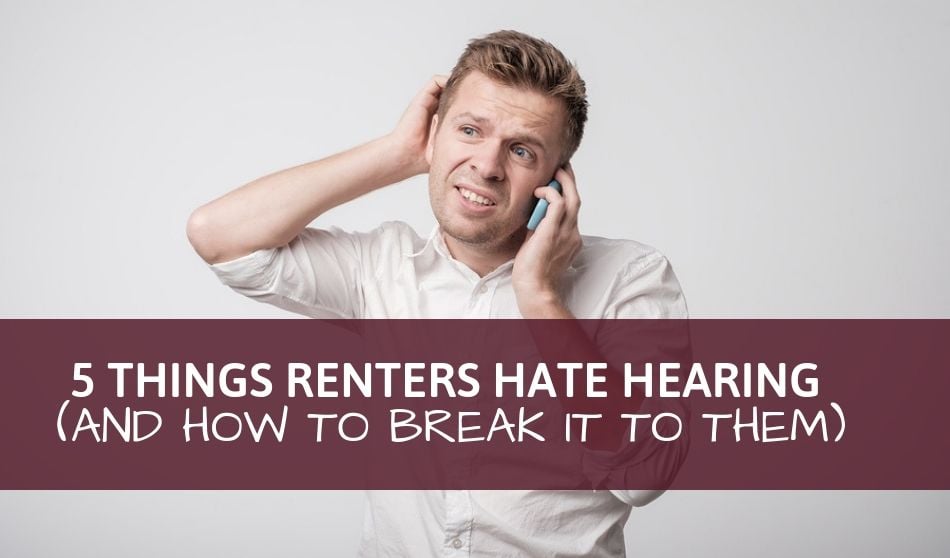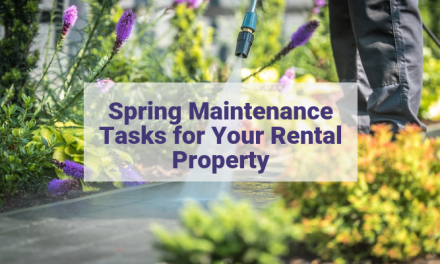
It’s no secret that renters often see the landlord or manager as “the bad guy.” From delivering news about rent increases to explaining why your tenants won’t be getting their security deposit back, it can feel like delivering bad news is half of the job. Protect your landlord-tenant relationship by finding ways to deliver the news renters hate hearing in the best light possible.
Your application was not selected and you didn’t get the rental
Knowing how to deny a rental applicant is key. Not only should landlords and property managers be considerate and empathetic when denying, but there are important legal matters to be aware of when informing an applicant that they were not selected for a property. Be sure that you have fully researched the requirements in your state before denying an applicant, and remember that a currently unqualified applicant could be a potential customer or give a referral in the future (this is especially true for young renters without a credit history) so be aware of your demeanor and tone when issuing a denial.
We need to raise your rent.
The need to raise rent is a reality that cannot be ignored for an investment to flourish. Taxes, inflation and maintenance costs all add up, and the savvy investor must pass those additional costs onto tenants. However, there are ways to mitigate shock and distress for tenants facing an increase in their monthly rent. First ensure that you are informing your tenants why the raise is occurring, providing a reason ensures that the tenant feels more valued. Instead of raising in one large jump, seek to raise the rent by a small percentage each year. The benefits are twofold, not only does this result in a larger long-term ROI for the owner, but tenants who know they will likely face a small increase each year can more easily prepare for the coming lease term–meaning they’re much more likely to stay long-term.
Due to maintenance, the pool (or another amenity) will be closed.
Do not underestimate your tenants’ love for the amenities you offer, and be prepared for some pushback when you announce that a certain amenity will be closed for maintenance. To mitigate tenant distress, plan ahead. Informing your tenants with enough lead time can allow your tenants time to prepare and lessen the severity of the bad news. To truly accommodate your tenants’ needs, work with a local business that will offer a discount for your residents (a local gym close-by that residents can attend while yours is remodeled, etc.) and attempt to schedule maintenance in your seasonal downtime, if possible.
Your landlord is not responsible for mediating disagreements between neighbors.
It’s an unpleasant reality that tenants sometimes will not get along with their next-door-neighbors, and when an argument occurs, your office will often get a phone call from a disgruntled renter. While you may have the policy to avoid mediating these situations, remember that a happy tenant can help avoid a cash-guzzling vacancy. Be willing to find solutions to bad neighbor problems. there is advice that you can impart to your tenants to assist them. Be empathetic to your tenants’ concerns, while gently reminding them that navigating neighborly relationships falls to them. Remind your tenants that if they feel that criminal activity is occurring, or they feel that they are in imminent danger, to call the police and report the issue.
You will only be getting a partial return of your security deposit.
Tenants often do not understand why they are only getting a partial refund of their security deposit, and they often have no problem voicing their concerns on this matter. Avoid a confrontation by making all of your expectations clear up-front. Go over the lease with the tenant word for word to ensure they actually read the lease stipulations and know what is expected of them. Set your tenants up to succeed. This not only shows that you are a great landlord or property manager to be working with but protects the properties you manage. Even an excellent applicant can have gaps in their maintenance knowledge–explain required maintenance tasks and why they are important. Remind tenants that not all damage comes from property abuse, but can be the result of neglecting to properly care for the property.
Informing renters of things they hate hearing, unfortunately, is part of the territory when managing a property. However, one instance of bad news doesn’t have to damage your landlord-tenant relationship.





